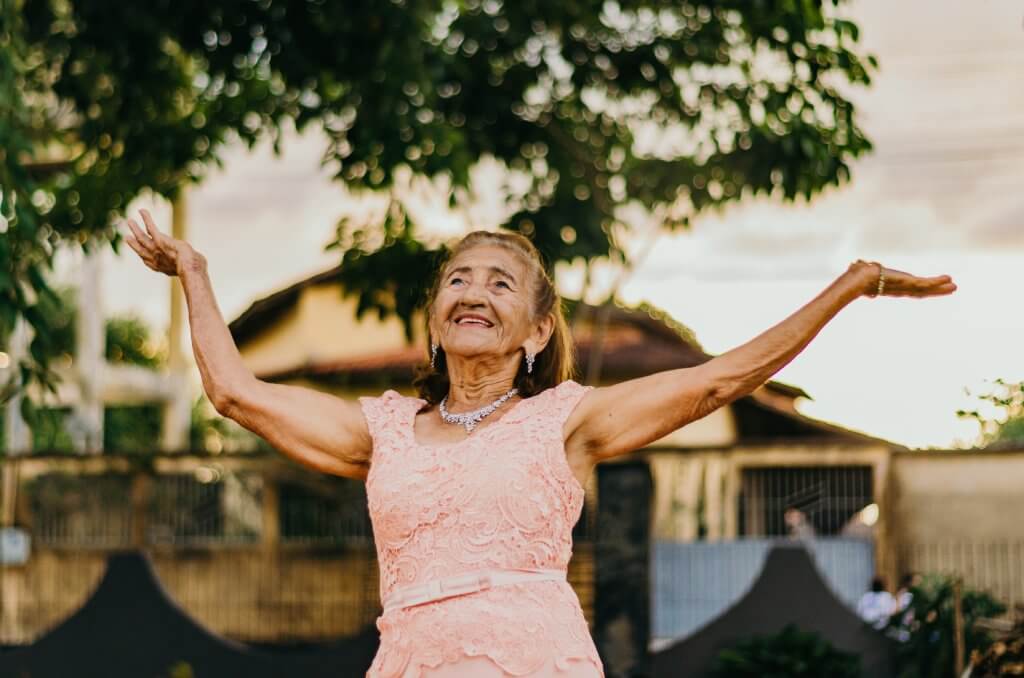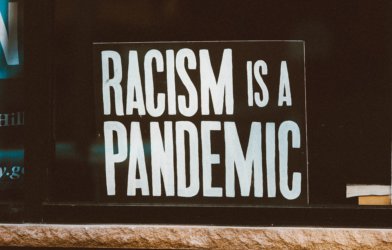New study reveals that people who spent much of their lives volunteering, giving to charity, or helping others have higher levels of oxytocin
Seniors really are kinder than younger generations thanks to the “love hormone” released in older people’s brains, according to new research. People who release more of the neurochemical oxytocin are kinder to others and tend to be more satisfied with their lives, say scientists.
The amount of oxytocin released in the brain increases with age, showing that on average, people are more caring as they get older, researchers say. Experts reveal that these findings are consistent with many religious philosophies, where satisfaction with one’s life is enhanced by helping others.
Oxytocin is a neurochemical widely known for its role in social attachment, interpersonal trust, and generosity. It’s also known as the “love hormone.”
“The findings of our study are consistent with many religions and philosophies, where satisfaction with one’s life is enhanced by helping others,” says study first author Dr. Paul J. Zak of Claremont Graduate University in California, in a statement. “Participants in our study who released the most oxytocin were more generous to charity when given the opportunity and performed many other helping behaviors. The change in oxytocin was also positively related to participants’ empathy, religious participation, and gratitude.”
Dr. Zak and his colleagues wanted to understand if the release of oxytocin changed with age, as is found with some other neurochemicals that influence feelings and behaviors.
“We have previously shown a link between how kind and generous people are, known as prosocial behaviors, and the release of oxytocin,” he adds. “Seniors spend more time volunteering and donate a larger proportion of their income to charity than do younger people, so we wanted to see if there was a neurochemical basis for these behaviors.”
Researchers recruited more than 100 people for the study, ranging between the ages of 18 and 99. Participants were each shown a video about a little boy with cancer, which previous work had confirmed to induce oxytocin release in the brain.
Blood was taken before and after the video to measure the change in oxytocin.
“Participants had the option to donate some of their earnings from the study to a childhood cancer charity, and this was used to measure their immediate prosocial behavior,” says Zak. “We also collected data on their emotional states, to provide information on their overall satisfaction with life. People who released the most oxytocin in the experiment were not only more generous to charity, but also performed many other helping behaviors.
“This is the first time a distinct change in oxytocin has been related to past prosocial behaviors,” he continues. “We also found that the release of oxytocin increased with age and was positively associated with life satisfaction.”
The finding that helping behaviors improve the quality of life is consistent with many faith traditions and philosophies, the scientists note. Serving others appears to prime the brain to release more oxytocin in a positive feedback loop of increased empathy and gratitude, according to experts.
Dr Zak says he wants to repeat this study in a more ethnically and geographically diverse sample of people to see if the findings hold for different cultures.
“We would also like to conduct a longer-term measurement of neurophysiology using non-invasive wearable technologies to see what specific activities raise people’s satisfaction with life,” he says.
The findings of the new research are published in Frontiers in Behavioral Neuroscience.
Report by South West News Service writer Chris Dyer













When I raised hogs, we’d give oxytocin to the sows that were slow in giving birth. Weird huh?
No acually it is because Democrats are being destroyed is the
reason we are happy!
When you hate someone, they control you. I suggest some oxytocin for you.
Word
Maybe the same thing applies to civilizations. As they get older they get softer and more gentle..and extinct.
My mother-in-law is evidence that this oxytocin thing is not universal.
Older folks are happier and kinder because more of them (than the younger crowd) are believers in God, followers of Jesus Christ, and know how to live Christian lives in obedience to the Bible commands. AND (best of all!), they have the assurance of Eternal Life with the ONE who died to pay the price for the forgiveness of their sins. This is SUPREME joy!
Who is giving our elders Oxycontin? Its like heroin!
Oxytocin is not Oxycontin!
Yes it is.
Having great sex for 40 years with my wife has made us happy. I hear sex unloads massive doses of oxytocin in the bloodstream. So maybe us old traditionalists know a thing or two!
Mr. Fink, the article is unclear about which comes first, the oxytocin or the pro social behavior. In places it says one, on other places, the other.
Big big difference.
Which comes first?
The egg…
This is totally misleading, most seniors who take opioids eventually turn into junkies and when their script isn’t enough they go doctor shopping, go into withdrawal and drive both doctors offices along with pharmacy operators up a tree.
Paul, the oxytocin is released naturally by the brain. Per this article, they are not taking it. It’s being ‘squirted’ by their own brain, similar I imagine to the dopamine and serotonin happy squirts we get from walking, exercising, etc.
Respectfully
Oxytocin is addictive. Ask any long distance runner. Blazing trails.
With my amyotrophic lateral sclerosis (ALS), the first thing that happened almost 2 years ago now, was speaking as if I were drunk. I wasn’t. I initially did improve speech (articulating clearly but slow) but now I can no longer speak in an acceptable way. Then, a year later eating became problematic, I was biting my tongue and lips, and chewing became weak and less controlled. Soon after that some fingers started to fail me and things would drop out of my hands. Somewhere at that time bulbar ALS was diagnosed. The Rilutek (riluzole) did very little to help me. The medical team did even less. My decline was rapid and devastating.. We tried every shot available but nothing was working. There has been little if any progress in finding a reliable treatment, Our care provider introduced us to Kycuyu Health Clinic ALS/MND herbal treatment. The treatment is a miracle.i recovered significantly! I Adhere anyone reading this to try natural approach. ALS is not a death sentence.